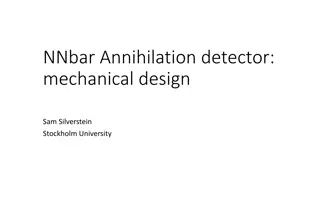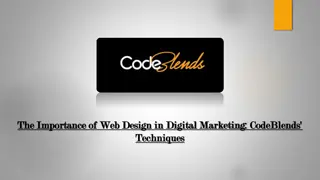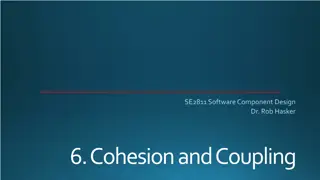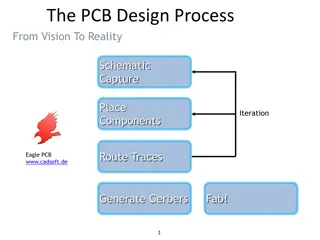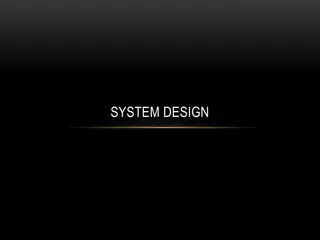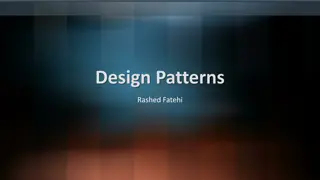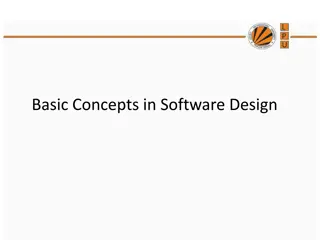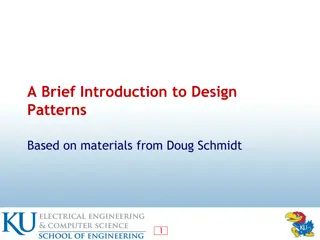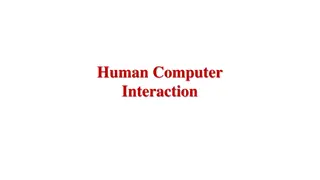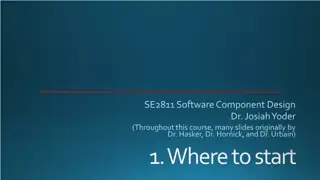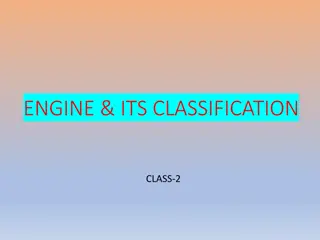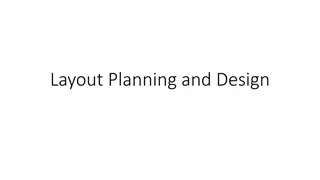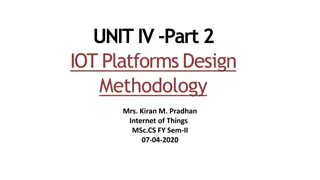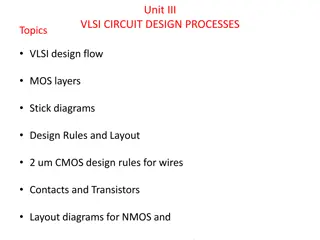Jaw Plates
When it comes to heavy-duty industrial machinery, one component that plays a critical role in ensuring efficient operation is the jaw plates. These plates serve as a vital component in various industries, including mining, construction, and recycling. In this blog post, we will explore the significa
0 views • 6 slides
The Importance of Jaw Plates in Industrial Applications
When it comes to heavy-duty industrial machinery, one component that plays a critical role in ensuring efficient operation is the jaw plates. These plates serve as a vital component in various industries, including mining, construction, and recycling. In this blog post, we will explore the significa
0 views • 6 slides
The Importance of Jaw Plates in Industrial Applications
When it comes to heavy-duty industrial machinery, one component that plays a critical role in ensuring efficient operation is the jaw plates. These plates serve as a vital component in various industries, including mining, construction, and recycling. In this blog post, we will explore the significa
0 views • 6 slides
Massachusetts District and School Accountability System Fall 2023
The Massachusetts District and School Accountability System for Fall 2023 includes various components such as Accountability Indicators, Normative Component, Criterion-Referenced Component, Assessment Participation, Categorization of Schools and Districts, and Reporting. It emphasizes measuring the
4 views • 32 slides
Software Analysis and Design Process
Software analysis and design involve a systematic approach to understanding user requirements, creating logical models, and transitioning to detailed design specifications. Requirements analysis focuses on capturing system requirements, while design translates these requirements into implementation
8 views • 16 slides
NNbar Annihilation Detector Mechanical Design Proposal
This proposal outlines the mechanical design considerations for the NNbar Annihilation Detector, highlighting practical concerns and proposed changes to the baseline design. Topics cover the structure support, component weights, installation challenges, and optimizations for improved detector perfor
2 views • 27 slides
Trending Gypsum Ceiling Design Ideas To Make Your Home Shine
Modern apartments are becoming more and more minimalist, showcasing clean designs. But what is the area where it is okay to add some drama? Yes, it's the ceiling! Gone are the days when the roof was the least important component of your home design. Now false ceiling is dominating the market. Wood,
3 views • 17 slides
Designing a 5V DC Power Supply Using IC 7805: Step-by-Step Guide
Design a 5V DC power supply using IC 7805 by selecting a regulator IC, transformer, diodes for the bridge, smoothing capacitor, and ensuring safety. The circuit includes an input transformer, rectifier circuit, filter, and regulator. Understand the importance of each component in the design process
6 views • 20 slides
Driving Efficiency in Agriculture | Exploring the Global ISOBUS Component Market
According to BIS Research, the Global ISOBUS Component Market reached a valuation of $714.3 million in 2022. Over the forecast period 2023-2028, the market is projected to exhibit a CAGR of 10.49%, ultimately reaching a value of $1.28 billion by 2028.
3 views • 2 slides
The Importance of Web Design in Digital Marketing
In the dynamic world of digital marketing, a company's website is often the first point of interaction between the brand and potential customers. As a leading digital marketing agency, CodeBlends understands that web design is not just about aesthetics; it is a crucial component that impacts user ex
1 views • 6 slides
Guide to Qualifying Exam at UConn BME Program
This guide outlines the importance of the Qualifying Exam as a rite of passage and a critical assessment of skills in written/oral communication, research project design, critical thinking, and more. It details the exam format, rubric, timeline, and key dates, providing insights into the NIH-style W
1 views • 9 slides
Guidelines for Design of Cement Concrete Pavement and Interlocking Paver Blocks
This document provides guidelines for designing cement concrete pavements and interlocking paver blocks, covering factors governing design, wheel loads, design period, subgrade characteristics, approximate k values based on CBR values, and the importance of a sub-base below concrete pavements. It em
0 views • 67 slides
Software Engineering Design Principles and Concepts
The chapter discusses the essential principles and concepts in software design, highlighting the four key design models - data design, architectural design, interface design, and component-level design. It emphasizes the importance of traceability to the analysis model, minimizing the gap between so
2 views • 36 slides
Cohesion and Coupling in Software Component Design
This content discusses the concepts of cohesion and coupling in software component design. It covers the importance of having high cohesion and low coupling in software systems to ensure better structure, ease of understanding, and maintainability. It also explores how design patterns such as Adapte
0 views • 30 slides
PCB Design Best Practices and Tips
Discover the comprehensive process of PCB design, from the initial vision to schematic capture, component placement, and route tracing using tools like Eagle PCB. Learn about various package types, general tips for layout optimization, and recommendations for placing power and ground traces effectiv
0 views • 21 slides
System on Chip (SoC) Design and Components
Explore the world of System on Chip (SoC) design, components, and working flow. Learn about Intellectual Properties (IP), platform-based design, typical design flows, top-down design approach, and the emerging Electronic System Level (ESL) design flow. Discover the essential components of an SoC, su
0 views • 45 slides
Design Inspiration and Elements in Costume and Fashion Design
Dive into the world of costume and fashion design through a visual journey of finding design inspiration, understanding the design process, emphasizing originality, and exploring different sources of creativity. Discover how technology, art, food, history, architecture, and nature can spark innovati
0 views • 45 slides
Enhancing Piping Design Efficiency with Spec-Driven Technology
Explore how Spec-Driven Piping technology powered by CADACTIVE offers a standardized approach for piping design in Creo Parametric. This innovative extension streamlines design communication, eliminates errors, and improves design efficiency by utilizing a master catalog, automated checking capabili
0 views • 15 slides
Material Design: Combining Classic Design Principles with Technological Innovation
Material Design is a design language that combines traditional design principles with the possibilities offered by technology and science. It emphasizes visual language, classic design elements, and innovation to create delightful user experiences. The Material Metaphor, Imagery, Typography, Color,
0 views • 34 slides
Comprehensive Guide to System Design Components and Techniques
System design involves the detailed planning and identification of components in an information system, aiming to provide users with a general understanding of the new system. This process includes techniques like flowcharts, prototyping, and component design, covering aspects such as output design,
0 views • 24 slides
Design Patterns: A Comprehensive Overview
Exploring the world of design patterns, this content delves into the essence of design patterns, their application in software design to resolve complexity, and the different types of design patterns - creational, structural, and behavioral. It also showcases examples of popular design patterns such
0 views • 22 slides
Basic Concepts in Software Design
Software design involves transforming customer requirements into a form suitable for implementation, with activities categorized into preliminary and detailed design stages. High-level design focuses on module identification and control relationships, while detailed design entails defining data stru
1 views • 24 slides
Component Design Basis Inspection (CDBI) Program Overview
The Component Design Basis Inspection (CDBI) program ensures plant components are maintained within their design basis and monitors their capability to perform essential functions. Insights reveal the inspection frequency, estimated hours, fees, team composition, and inspection schedule. The baselin
0 views • 18 slides
3D Design and Critical Analysis in Architecture
Dive into the world of 3D design and critical analysis with a focus on architecture. Discover the stages of design, essential skills for designers, and areas of study in three-dimensional design. Delve into iconic buildings like Frank Lloyd Wright's Falling Water, analyze their key features, and eve
0 views • 9 slides
Value for Money Scorecard Criteria and Scoring Framework
This content outlines the Value for Money (VfM) scorecard criteria and approach to scoring projects based on six components: Relevance, Effectiveness, Efficiency, Sustainability, Economy, and Cost-Effectiveness, and Equity. Each component is ranked on a scale from 1 to 5, with a project offering exc
0 views • 5 slides
Design Patterns in Object-Oriented Design
Design patterns in object-oriented design (OOD) are essential templates that codify best practices for solving common problems. They help streamline development by capturing proven design decisions, promoting code reuse, and enhancing system flexibility and modularity. Learn about the core concepts,
0 views • 20 slides
Interaction Design in Human-Computer Interaction
Interaction design focuses on creating interactive products that are easy, effective, and enjoyable to use. It aims to reduce negative user experiences while enhancing positive ones. Designing interactive products requires understanding user activities, interfaces, and device arrangements to support
0 views • 11 slides
SE2811 Software Component Design Overview
This course covers software component design, design patterns, object-oriented design, algorithms, and opportunities for reuse in systems design. It emphasizes the importance of domain-level design and provides insights into solving core problems through reusable classes.
1 views • 21 slides
Analysis of Bunch Lengthening in CEPC for Different Design Parameters
This study explores bunch lengthening in the Circular Electron Positron Collider (CEPC) for various design parameters, analyzing a 54 km design scheme, a 61 km design scheme, and a 100 km design scheme. The analysis includes the theoretical framework used, equations for bunch lengthening, and conclu
1 views • 15 slides
Plain & Reinforced Concrete Structures in Design Engineering
In the design of Plain & Reinforced Concrete structures, various strength design methods such as Ultimate Strength Design (USD) and Allowable Strength Design (ASD) are utilized. These methods involve factors of safety, material strength, load factors, and analysis in the elastic range. Additionally,
0 views • 11 slides
Verilog Adder Examples & Typical IC Design Flow
This comprehensive content delves into Verilog adder examples, typical IC design flow, physical design considerations, and examples of OpenGL ES GPU and ARM hypervisor applications. It covers the fundamentals of digital logic with Verilog design, hardware description language, FPGA prototyping, phys
1 views • 27 slides
Reliability Theory in Engineering and Mathematics
Reliability theory, presented by S. Ithaya Ezhil Manna, explains the concept of reliability as the probability of a component functioning properly over time. The theory defines reliability in terms of the random variable X representing component life or time to failure. Key points include the defini
0 views • 22 slides
Introduction to Creating Graphical User Interfaces in MATLAB
Explore the world of creating Graphical User Interfaces (GUIs) in MATLAB with this informative guide. Learn how to design GUIs, program them to respond to user actions, and launch them effortlessly. Dive into essential topics such as GUI creation, component layout, and programming details, all witho
0 views • 40 slides
The Importance of Software Design for Data Scientists
Today's ISEA Session 2 with David Beck from the University of Washington delves into the critical role of intentional software design for data scientists. The session covers the software design approach, user-centric design stories, use cases, components, testing strategies, and the benefits and dra
1 views • 76 slides
Advanced Neutronics Parameters for Fusion Chamber Configuration with Magnetic Intervention
Detailed analysis and design considerations for a fusion chamber configuration utilizing magnetic intervention to optimize neutronics parameters. The discussion includes blanket configuration, neutron wall loading distribution, blanket design options, nuclear design requirements, and dimensions meet
0 views • 12 slides
Engine Classification and Design
Engine classification involves categorizing engines based on various factors such as combustion type, number of strokes, cylinder design, and ignition method. Common classifications include external and internal combustion engines, as well as categories based on the design and use of the engine. Add
0 views • 11 slides
PCB Design Considerations and Important Elements
Understanding the critical aspects of PCB design, including layout planning, general considerations, technical requirements, design elements, and performance parameters, is essential for ensuring efficient and reliable electronic equipment. Designers need to be well-versed in various wiring types, c
0 views • 121 slides
Four Channel Ultrasonic Receiver Project Overview
Design and create a Four Channel Ultrasonic Receiver capable of receiving signals between 30 kHz and 50 kHz, including chirp and constant frequency signals. The project involves detailed system design, testing, circuit design, PCB layout, and various project milestones. High risks such as component
0 views • 12 slides
IoT Platform Design Methodology and Specifications
This content elaborates on the IoT platform design methodology, including purpose and requirement specifications, process specification, domain model specification, and information model specification. It also covers IoT level specifications, functional view specification, operational view specifica
0 views • 10 slides
Stick Diagrams in VLSI Circuit Design
Stick diagrams in VLSI design help visualize the layout of components on silicon by capturing topography and layer information through color codes or monochrome encoding. They serve as an interface between symbolic circuits and actual layouts, facilitating the planning of layout and routing while de
0 views • 27 slides





